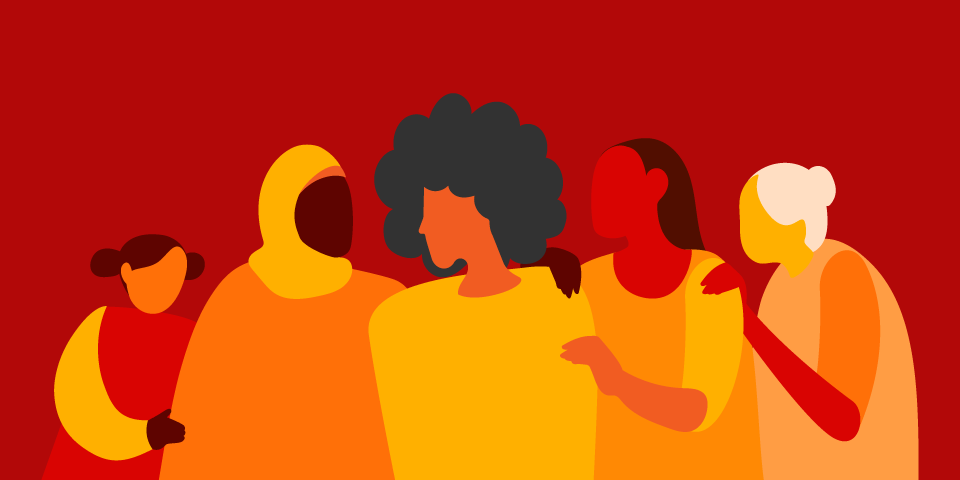Why is violence against older women going unrecorded?
Published on 24 November 2021 04:48 PM
Today marks the International Day for the Elimination of Violence against Women 2021 and the start of the 16 Days of Activism against Gender-Based Violence.

Nearly 1 in 3 women have been abused in their lifetime and in times of crises, the numbers rise, as seen during the COVID-19 pandemic and recent humanitarian crises, conflicts and climate disasters. A report from UN Women, based on data from 13 countries since the pandemic, shows that 2 in 3 women reported that they or a woman they know experienced some form of violence and are more likely to face food insecurity. Only 1 in 10 women said that victims would go to the police for help.
Older people in the Democratic Republic of the Congo (DRC) have lived with insecurity for a long time. In the last year Coronavirus has fuelled the risk of violence and we have received extremely distressing reports of multi-generational sexual violence from our partner organisation, HelpAge DRC. TRIGGER WARNING: The following accounts contain multiple forms of trauma, including violence, sexual assault, and mental health. You might find this content disturbing.
Women of all ages experience violence but there are often huge data gaps around older women’s experiences.
In a WHO report on sexual and intimate partner violence, only 66 of its 392 estimates included women over 49. The surveys this study was based on begin capturing this information at age 15 or 18 and then stop at 49, irrespective of the reality that violence against women has no age limit.
A lack of data translates into a lack of protection mechanisms and limited support services for victims, as well as scant prevention programmes.
Older women’s double discrimination
Violence against older women is driven by the double discrimination of ageism and sexism. It is also exasperated by other characteristics such as marital status or having a disability and grounded in deep-rooted prejudices, dehumanising stereotypes and social norms that tolerate and even condone awful acts of violence.
An older woman may be the victim of verbal and physical abuse in her home. She may be accused of "witchcraft" and attacked or even murdered by members of her own community. She may be denied the right to land from her husband when he dies due to discriminatory inheritance laws. Or she may be deprived autonomy in a care setting, with other people making decisions for her that may not be her wish.
She may face many forms of sexual, physical, financial and emotional abuse, committed by various perpetrators.
Accusations of witchcraft are the most extreme form of abuse, often ending in death or mutilation.
Deyu was alone, watching over one of her great-great grandchildren – a baby – the night that she was attacked.
‘I shouted out “who are you?” but couldn’t see their faces,’ she recalls.
The intruders cut off both of Deyu’s arms and left her for dead.
In October 2021, four older women in Kenya were accused of witchcraft and brutally lynched. Our partners HelpAge Africa and HelpAge International with many others are calling for authorities to respond. This is outrageous ageism and we support the cry to stop it now.
To raise awareness of women’s violence, this year the UN's theme is "Orange the World: End Violence against Women Now!". Orange is the colour to represent a brighter future free of violence against women and girls. Be part of the orange movement!
Read more about how older women face discrimination and violence and how we are supporting them.
